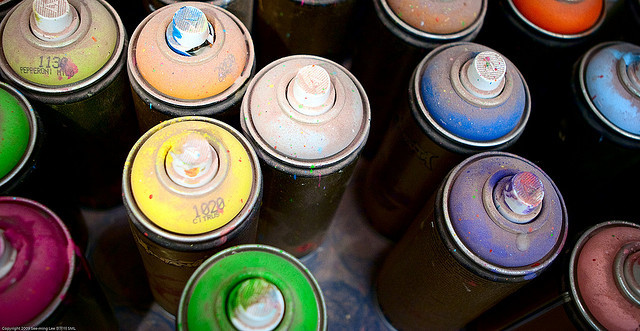Whether you’re working in an art studio for fine art printing or you own one, you may be at risk in being exposed to various solvents and chemicals that can be harmful to your health. Working safely means being knowledgeable with the dangers of the media that you’re working with or exposed to, making alterations in selecting and handling art materials and building a healthy environment for you to work in.
Materials used in art studios can be dangerous, however, that doesn’t mean that you can’t use and work with them. The important thing is that you know the precautionary measures to keep yourself safe.
Fire Hazards and Art Materials
Some of the materials used in art studios are fire hazards; such materials include solvents that are combustible or flammable, chemical oxidizers and oily rags. To avoid such materials getting caught on fire, make sure to remove any electrical equipment that may produce sparks. Flammable solvents that are dispensed from big metal containers must be ensured that both containers are grounded to dispel static electricity. Solvent-soaked rags and oily rags must be stored in closed metal basins.
Controlling Hazards
Make sure that your art studio is installed with an exhaust ventilation system to capture contaminants like dust, vapors, gases, fumes and other particulates from their sources and draining these contaminants straight over a duct system. For works that utilise toxic materials or dust, local exhausts such as a hood or spray booth are needed for proper ventilation. Local exhaust ventilation is also recommended with works like welding, woodworks, acid etching, spray painting or any works that utilise toxic and flammable materials.
Personal Protective Equipment
To lessen exposure to hazardous chemicals or other agents, make sure to substitute unsafe chemicals or materials with safer or less dangerous material if possible. But if the material can’t be substituted, use it under local exhaust ventilation. If all the mentioned controls above are not possible, it may be essential to wear PPEs or personal protective equipment like glasses, gloves, respirators and proper clothing.
Disposal
If you have extra materials that you do not use anymore like paint, processing chemicals or other toxic agents, such materials are now considered as hazardous materials or waste. Many towns or cities have a designated day once a year where hazardous materials and wastes are collected for disposal. You can check your town or city regarding about this recycling program so you can dispose such wastes properly.
If you need Giclee printing in Vancouver, contact Tricera Print.
















